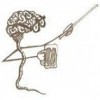Libertarianism vs Social Democracy
Just read a really interesting article on social democracy by Tony Judt called "What Is Living and What Is Dead in Social Democracy."
I recommend the whole article, but this is one passage that stood out to me as being particularly interesting:
"By eviscerating the state’s responsibilities and capacities, we have diminished its public standing. The outcome is "gated communities," in every sense of the word: subsections of society that fondly suppose themselves functionally independent of the collectivity and its public servants. If we deal uniquely or overwhelmingly with private agencies, then over time we dilute our relationship with a public sector for which we have no apparent use. It doesn't much matter whether the private sector does the same things better or worse, at higher or lower cost. In either event, we have diminished our allegiance to the state and lost something vital that we ought to share - and in many cases used to share - with our fellow citizens."
"This process was well described by one of its greatest modern practitioners: Margaret Thatcher reportedly asserted that "there is no such thing as society. There are only individual men and women and families." But if there is no such thing as society, merely individuals and the "night watchman" state—overseeing from afar activities in which it plays no part—then what will bind us together? We already accept the existence of private police forces, private mail services, private agencies provisioning the state in war, and much else besides. We have "privatized" precisely those responsibilities that the modern state laboriously took upon itself in the course of the nineteenth and early twentieth centuries."
"What, then, will serve as a buffer between citizens and the state? Surely not "society," hard pressed to survive the evisceration of the public domain. For the state is not about to wither away. Even if we strip it of all its service attributes, it will still be with us - if only as a force for control and repression. Between state and individuals there would then be no intermediate institutions or allegiances: nothing would remain of the spider's web of reciprocal services and obligations that bind citizens to one another via the public space they collectively occupy. All that would be left is private persons and corporations seeking competitively to hijack the state for their own advantage."
"The consequences are no more attractive today than they were before the modern state arose. Indeed, the impetus to state-building as we have known it derived quite explicitly from the understanding that no collection of individuals can survive long without shared purposes and common institutions."
Thoughts?Powerful. Tony Judt was a wise and thoughtful man. Libertarians seek to revive the discredited social Darwinism of Herbert Spencer.
http://en.wikipedia.org/wiki/Social_darwinismThis writer created a straw man out of libertarian ideas, and then set it afire. If he doesn't want to honestly deal with libertarian ideas, why did he even write the article? Obviously, as a slander, to smear those he disagrees with.
Does he really believe that 18th and 19th century Americans were LESS patriotic than current ones? That they cared less about their fellow man? He is either vastly ignorant, or mendacious.
Is 'society' merely the government? Or is society our many human interrelationships, family, church, school and on up. HubPages is an organic society, so lets just turn it over to the government for management. Obviously, we'll all be so much better off.
Yes.
Which is why the fools that seek limited government will eventually regret what they wrought.
Well, no, but only because they won't understand what happened. They will be bitter old men and women still complaining about the damn guvmint tellin' us what to do long after the only thing left is a dead corpse whose lifeless limbs are controlled by corporate power.I know all my neighbors as well as a multitude of other people in my community.
"there is no such thing as society. There are only individual men and women and families."
This is true, a human being is a reality while a government,corporation, city or town is nothing but an acknowledged fiction.
I will not touch the Social Democracy?
Funny - the cartoon resembles the 'militias' that the rigties are so proud of. And they accuse the left of having or being - where they don't exist.
Do note as a trend - it's not absolute - who posts with their real name and who posts with a phony slogan. Just sayin...This is what it resembles!

???????? Just sayin.......What???
America has been over-run by Robber Barons.
Our social contract has been replaced with making money-- as much as you can, with no thought to your fellow man.
It's shameful, and nothing to be proud of IMO.
I tell my kids..."I was lucky enough to have lived in an America where people cared about each other...once long long ago.
That America was murdered along with Kennedy, King, Kennedy and X.I think you also have to add to this the other half of the problem, the entitlement state with it's hands out and it's lawyers looking to sue.
Between the "robber barons" and the leeches, the country is pretty beat up.
The point of this article, in my opinion, is essentially that nobody gives a s@!t anymore. The top tier of our society is sucking up everything they can and don't care. The bottom tier has nothing to lose, feels victimized despite putting in no effort, and the middle moves into the gated communities because they, rightly so, feel they are under attack from all sides.
I hate commenting in this forum category, because I have opinions, but not nearly as much hard information as most commenters here have. I didn't read the linked article, but only the section quoted here. [The preceding paragraph is a disclaimer.....]
Still... the mental image that I have when I think of equating "society" with "government" or "the state" is that of early colonial America, when the government adopted by some societies to reflect their values was often religion-driven: Puritans, Shakers, similar groups. Obviously, those governments did not reflect beliefs of the entire society, or they would still be in existence today.
In a nation as large as the USA is today, how can we reasonably expect that the state or the government will reflect the values of "the society" as a whole when our society is so diverse, multicultural, heterogeneous?
Does the writer of the article really mean that our allegiance to "the state" should be stronger than to the people that we know and see and rub elbows with every day? I really think there has to be a balance between the individual and the collective, and a respect for that balance is what I believe is lacking in most political arguments today.Social democracy is a good political system. However there is a limit to what liberties it would offer here in America. Libertarianism is just a fantasy here.Bureaucrats and our representative government limits individual freedoms and expands organization's influence on society. Maybe not on a federal level but we can implement libertarianism in city government where direct democracy is more likely to happen.
The funny thing about the Thatcherite "night watchman" concept is that, taken to its logical extent, the night watchman himself will eventually become an employee of a private company! If privatization is really always the best thing to do, then why not privatize literally everything? If we privatize legal judgments and contract enforcement, surely the "market" will decide which companies handle contracts better, which companies protect private property better, etc, right? This tendency toward anarchy is a cardinal danger of libertarianism.
On the other side, the tendency toward greater government involvement in society and the bloating of bureaucracy is a cardinal danger of social democracy. The key is to strike a balance between the individual and the collective. History shows us what extreme statism and extreme libertarianism both have done to crush human initiative and human wellbeing.Alright, time to have a real Libertarian (well, an Anarcho-Libertarian) Completely destroy this nincumpoops argruments.
... and I haven't even read the darn thing yet...
Here we go!
... didn't get much farther than the first sentence before I found the first thing to comment.
1) "Americans would like things to be better" -- what an obvious, and idiotic, thing to say. a) EVERYONE would like EVERYTHING to be better. It's a very rare thing to hear someone say "man, I wish I had to work harder to get what I want! Enjoying life sucks too much!"
2) The first two paragraphs show that he is a nincumpoop. He's automatically assuming that the only way to properly get life to be better is through government force. this is non sense. Let me remind you that the hand of government is already elbow-deep into the throat of the health care market.
3)"A century ago, the German sociologist Werner Sombart famously asked: Why is there no socialism in America?" ... I dunno what it was like a century ago, but if anyone still thinks there's no socialism in the US, they need not look farther than the public education system. There obviously is socialism in the US.
4) "Why is it that here in the United States we have such difficulty even imagining a different sort of society from the one whose dysfunctions and inequalities trouble us so?". Every. Single. Forum. Here on hubpages proves this point wrong.
5)"...when asking ourselves whether we support a proposal or initiative, we have not asked, is it good or bad?" Anytime you ask government to steal money from one person and give it to another, the obvious answer is that it's bad.
6)"Instead we inquire: Is it efficient? Is it productive? Would it benefit gross domestic product? Will it contribute to growth?" It's amazing to hear this guy argue that this kind of discourse is BAD for Socialism - this is how we have to come to have socialism crammed down our throats at every turn!! When you steal money from one person to give to another, it's bad. But when you can lie with statistics (check out the book by the similar title: "How to lie with statistics") you can make false arguments that lead people to ignore the evils of theft and instead turn to "well, I got what I wanted, i suppose".
7)... oh... this article just turns into a "Keynes vs. Austrian" argument.
I forget who it was, but a Keynsian openly admitted in Congressional hearings that "if we have inflation and unemployment at the same time, then we'll (keynsians) have to retire". Then the 80's stagflation hit... and... we still all talk about keynes.
Keyne's theories have been disproven for at least 30 years now, and they've been pointed to as incorrect since about the 40s.
8) "If you compare the gap separating rich and poor,..." Anytime you read something like this, realize you're being manipulated. This shows that the author (or the speaker) doesn't understand the difference between a Consumer good and a Capital good, AND that the person thinks that capital goods should be treated like consumer goods.
Here's a brief rundown: Yes, as of 2001, 1% of the population of the US owned 38% of the wealth. But think about this: does the factory that produces Cars (ford perhaps?) produce cars for the OWNER of the factory, or for people who want to buy cars? -- Sure, the "wealth" (the factory) is owned by just a few people, but it's not like they get to keep every single car that rolls off the factory line!! This would be nonsensical, and also a horrible business model.
And this brings us to the point: IF we were to redistribute this Capital good (the factory) as though it were a Consumer good (something like a car), then it would destroy the good in question.
Redistribution of wealth is nonsense, and people who argue for it do not understand the difference between Capital and Consumer goods.
Read more here: http://mises.org/daily/4819
9) He makes the same mistake here: "In the US today, the “Gini coefficient”—a measure of the distance separating rich and poor—is comparable to that of China"
10)"the process of privatization. In the last thirty years, a cult of privatization has mesmerized Western (and many non-Western) governments. Why? The shortest response is that, in an age of budgetary constraints, privatization appears to save money. If the state owns an inefficient public program or an expensive public service—a waterworks, a car factory, a railway—it seeks to offload it onto private buyers."
Here, he himself, ignores the "good or bad" argument. Privitization is the right thing to do because that which was stolen by the government is now being liberated to those who helped pay for it. Yes, i fully admit that the poorest person helped pay for the item in question, and that now some wealthy person has the majority claim to it -- but do NOT blame the market for theft!! it was the government that stole the wealth to begin with.
-----------
I didn't realize how long this was going to be, and I have other things to do I'll just address what was originally quoted by the OP.
--Why does the author think that "gated communities" are so evil? I mean, I doubt that this is actually how a free-market community would look, but ... gated communities exist already - I lock my doors at night, so many houses have fences, the squirrels in my back yard fight to claim ownership of the tree... why is this wrong? And to put another twist on it: If gated communities are so evil, then why are we even discussing the differences between the US, france, britain, China and Austria, and so many other gated communities that we call "countries"?
-- This sentence alone: "It doesn't much matter whether the private sector does the same things better or worse, at higher or lower cost." shows that he has little to no respect/understanding of the argument he's arguing against. 1) the free-market CAN'T rely on theft, like the government can (and thus it's "good"), and 2) when an agency (the government) CAN rely on theft, it will tend to be less efficient. Thus the free-market, almost by definition, is GOOD in that it's efficient and in that it's not evil.
-- "But if there is no such thing as society, merely individuals and the "night watchman" state—overseeing from afar activities in which it plays no part—then what will bind us together?" ... yes yes yes... This sounds very happy and soul-ful. But the obvious answer is, astonishingly, GREED. Greed keeps us together. I want X, thus I must convince the owner of X to give it to me. If the GOVERNMENT wants X, then it passes a law, yada yada yada, then it takes it.
Greed keeps us together because it ensures that everyone is giving to the greater good of society. No, we won't have to call ourselves "Americans" or "Europeans" anymore, but these are just idiotic remnants of foolish government thefts to begin with.
-- "We have "privatized" precisely those responsibilities that the modern state laboriously took upon itself in the course of the nineteenth and early twentieth centuries."
OH man, that POOR government!! My heartstrings are REALLY being plucked!! I hope that the government could get some candy and feel better!! ROFL!!!
Listen - EVERYTHING THAT THE GOVERNMENT "Laboriously took upon itself..." was 'taken upon itself' through theft. "Pay up, or your ass is in jail". That AIN'T the story that socialists paint of government, but it is undeniably the truth. Right now the US is in 3 wars (afghan, iraq, and we're bombing pak) and I don't want to be funding this. But If I stop paying, I get thrown in jail.
-- The state can be withered away. It won't go away completely, but an Anarchist society can flourish. Just cut spending. that's all that needs to be done.
Unfortunately every Republican is demanding that we "cut taxes" and every Democrat is demanding that we "spend more"
No one is demanding that we spend less - and this should be expected of a government - they want to take your money.
------
------
Anyway, I know I didn't convince anyone, sadly. Posts like this never do.
The simple fact remains - Taxes are theft, but private contracts are agreements.
I've read other posts on here (like secularist10 saying that "this tendency toward anarchy is a cardinal danger of libertarianism" -- it's clear he has never seriously considered if Anarchy could work.) and it would be fruitless to argue with them.
When I do argue, I get banned. I'll be expecting another ban for this one.
Honestly, after the cruel remarks you made over on the boy and flag thread, I hope you DO get banned.
And I don't give a darn whether I'm banned or not for saying that, or for what I said on that other thread--you went TOO far.Evan,
"like secularist10 saying that "this tendency toward anarchy is a cardinal danger of libertarianism" -- it's clear he has never seriously considered if Anarchy could work."
Haha, is it now?
I assure you, I have seriously considered anarchy, and it doesn't work for a number of reasons, one major one being: the monopoly on violence. If there is no single authority that everyone accepts as having the monopoly on violence, then violence will become decentralized and democratized--in other words, everyone will be violent because there will be nothing to stop them.
As proof, aside from the enormous evidence from history, just consider a single modern country: Afghanistan.
In Afghanistan, the central state has extremely limited power and loyalty from the people. Instead, the bulk of the power rests with the warlords, tribal chieftains and clan leaders at the local and regional level. The result? Afghanistan's modern history is riddled with war, violence and destruction as these micro kings fight amongst each other for land, honor, or just for fun. Now that the bloody iron fist of the Taliban is gone, we are seeing this anarchical tendency once again.
That is what anarchy looks like. Is that what you want in the US?"-in other words, everyone will be violent because there will be nothing to stop them"
I must protest that this is nothing more than nonsense. "Just because the police will throw me in jail if I murder someone" is NOT the reason why I don't murder people. I don't murder people because... well.. i don't really want to!
Aside from that, I know that there are some pretty big sick-o's out there who might want to kill me. And thus I would pay money to protect myself (as I do now, involuntarily, for a police force). The only difference would be that this system would be voluntary.
that would be THE only difference.
I refuse to take Afghanistan as an example because it is not a country where the free market is at work. Thus your example is completely flawed. When three (or more) governments are stealing money from their populations in order to demand authority over another population, it is impossible to call this anarchy.
It isn't anarchy. Thus your example is flawed. It's 3+ governments fighting for power through theft of their people. that isn't anarchy, that's warfare -- government caused warfare.
I've said what I needed to say. I will not respond again. Nothing I've said so far should be grounds to ban me.Who the heck said anything about banning you? I thought we were having a conversation.
"And thus I would pay money to protect myself (as I do now, involuntarily, for a police force)."
Incorrect. You voluntarily pay for a police force, because you have the freedom to move to another city, state or country. You have voluntarily chosen to live in this society, and pay all of the dues (de facto and de jure) accordingly.
In addition, suppose someone cannot afford the $5000 per month for a decent security service in your hypothetical anarchical world? Then what? Tough luck for them, I guess? Sounds like a recipe for constant civil unrest, civil war and populist revolution.
Moreover, what will you do when your precious security service forms a cartel with the other big three services (because there's no anti-trust enforcement, since there's no government, remember), monopolizing security in your region, and jacks up rates to the point where you're paying 90% of your income to them? Gosh, that'll make it difficult to start a new business or do much of any economic activity, won't it...
"I refuse to take Afghanistan as an example because it is not a country where the free market is at work."
You never said anything about a free market. You only mentioned anarchy.
Here's the problem with your notion: a free market requires contract enforcement and protection of property rights, yes?
Ok, question: in the absence of a governing body (read: government), who will enforce the contracts and protect the property rights?
Whoops, looks like a government is actually necessary for a free market to exist in the first place. In other words, anarchy is inimical to the free market.
"When three (or more) governments are stealing money from their populations in order to demand authority over another population, it is impossible to call this anarchy."
Hmmm, sounds a lot like that security cartel I mentioned! When they start demanding in-kind payments of free labor from you once a week, a pint of blood once a year, and a private evening with your wife once a month, maybe you'll reconsider your support for anarchy. Oh wait, by that time it will be too late, you'll already be in Afghanistan.
And you called my argument nonsense.
Related Discussions
- 24
Does the political philosophy of anarchy have a legitimate role?
by cjhunsinger 11 years ago
Many today condemn America in favor of an anarchistic form of government. Anarchy is defined as, "an absence of government and absolute freedom of the individual, regarded as a political ideal." It is also defined as chaos, mob rule and an absence of authority of any description.Having an...
- 145
This is your libertarian paradise
by Sooner28 12 years ago
http://www.nytimes.com/2013/05/17/world … odayspaperhttp://www.nytimes.com/2013/04/23/world … wanted=allEmployees work in dangerous conditions, are paid a pittance of a wage, and don't even have the ability to breathe clean air, and in some places, drink clean water. (American history...
- 24
Why is a sovereign citizen considered an extremist?
by mintinfo 12 years ago
Why is a sovereign citizen considered an extremist?If you know what a soverign citizen is do you agree that they are considered a threat to society by the FBI?
- 466
Socialism, oh my!
by Susan Reid 13 years ago
Love this!
- 35
Private vs. Government Retirement Investment
by JaxsonRaine 13 years ago
http://www.cato.org/pubs/pas/PA692.pdfThis is exactly why I hate the government forcing me to do things through them.This study looked at what private investments would have done compared to Social Security. It broke the numbers up into high-income, average-income, and low-income scenarios.Private...
- 46
Improving U.S. Political System
by Kathryn L Hill 9 years ago
Democrats expect people to pull together to help one another in a collective way. They do not realize this system removes a certain amount of individual freedom through raising taxes. Republicans want to empower the individual by keeping taxes low. They believe individuals, (through the self-effort...


















